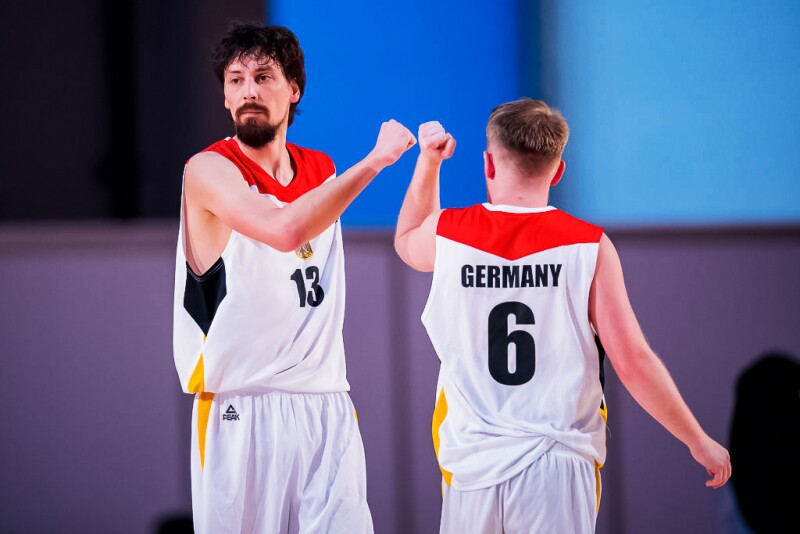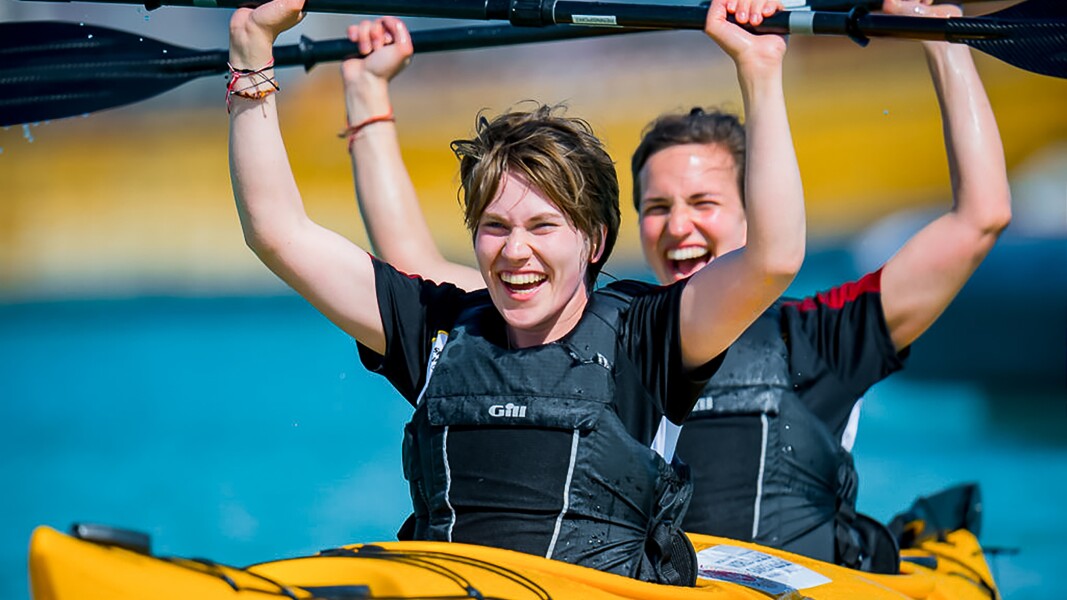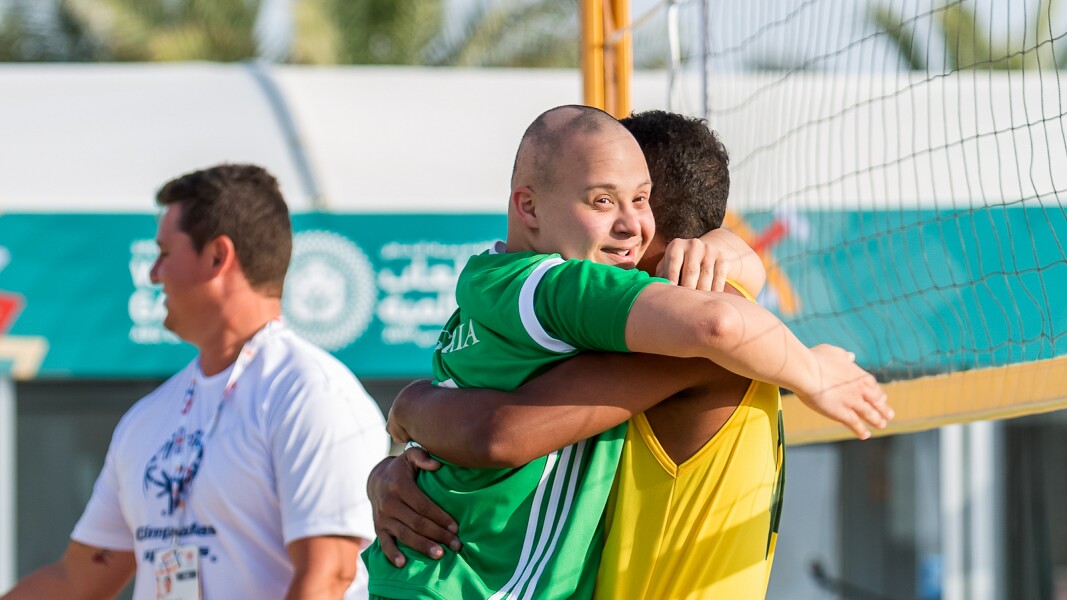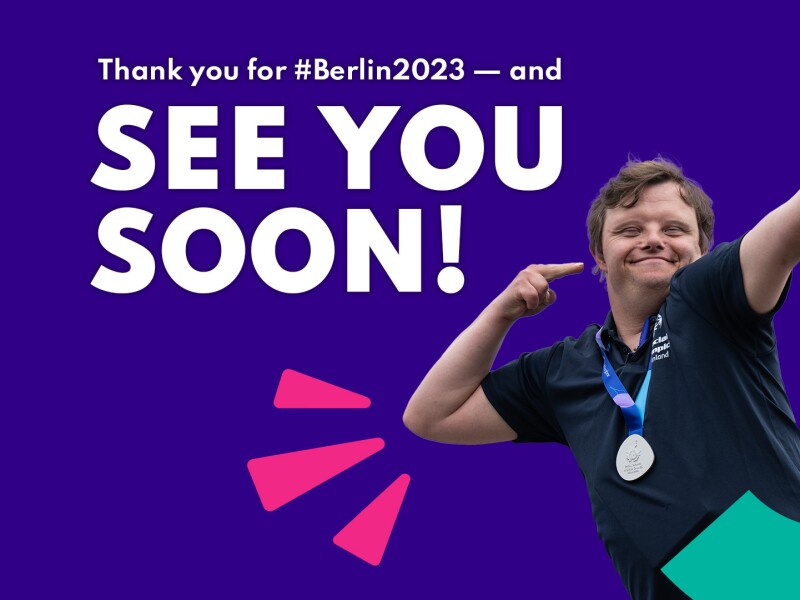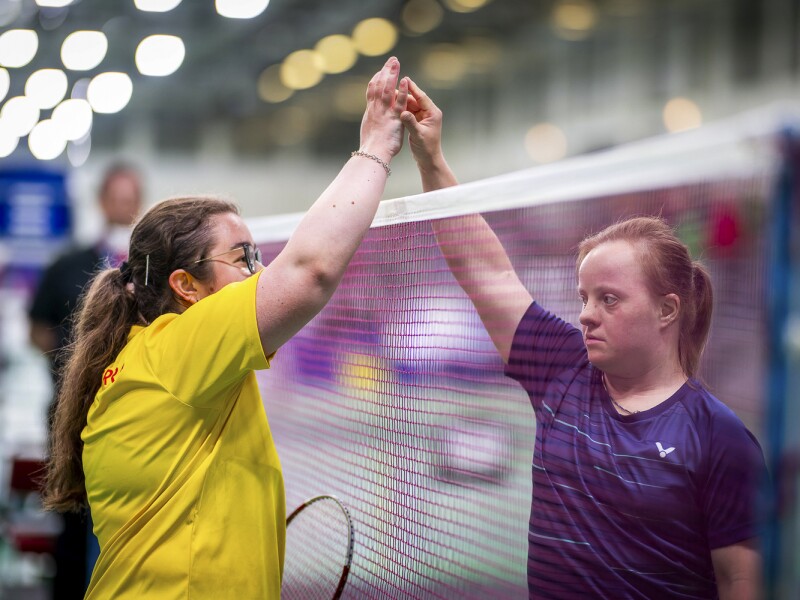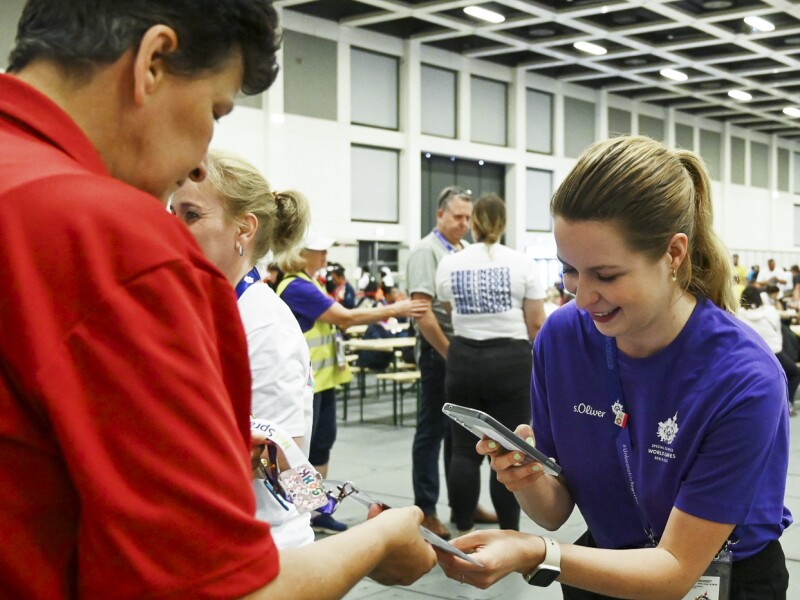We spoke to Andrea Standecker, part of Team Sports and longtime member of the Special Olympics family, to learn more about Unified Sports®, what makes it special for her and how Unified judo works.
How would you explain the concept of Unified Sports® in simple terms to someone who has never heard of it?
Andrea: Unified Sports® is inclusive sports of people with and without intellectual disabilities. That is the basis of everything.
We call participants with intellectual disabilities athletes and participants without intellectual disabilities Unified partners.
And what is special about it for you personally?
I would say the togetherness. That you really notice how the teams grow together, even in places where you would perhaps not assume at the beginning that such a heterogeneous group can grow together in this way. That is true inclusion and also an important principle of Unified Sports®: that everyone is involved in a meaningful way.
What are other principles of Unified Sports®?
Now it gets a little theoretical. Unified Sports® is roughly based on three approaches that are designed to allow everyone to participate. It is important to note that there is no ranking between the approaches:
1. the recreation-oriented approach. Here the focus is on doing fun sports together, without any restrictions such as ability level or age.
2. the development-oriented approach. Here the focus is more on learning from each other, as people of different abilities play sports together and the less able participants can learn from the more able, regardless of whether they are Unified partners or athletes.
It is true inclusion and an important principle of Unified Sports®: that everyone is involved in a meaningful way.

3. the competitive approach. At the National Games and World Games we act according to the competitive approach. Here, the teams are put together in a way that they all have approximately the same age as well as the same performance level and have already been training together as a team for some time. To ensure that this is the case, we have so-called Unified observers at events.
What exactly do Unified observers do?
Unified observers have the task of observing the competitions and then to determine whether all athletes and partners are equally involved in the competition. We also call this "meaningful involvement".
And if that were not the case, then the Unified observers, in consultation with the competition management, could sanction the team.
At the National Games, all sports except powerlifting and roller skating are hosted as Unified Sports® competitions. With team sports like handball or basketball, it's relatively easy to imagine how that works. But what about judo, swimming, or other individual sports - how does that work?
In general, swimming and athletics are rather individual sports, where you might think a little more about how Unified Sports® can be integrated. And then I suppose you would relatively quickly think of the relay competitions. For example, in swimming there is a relay consisting of four athletes, two of them athletes and two partners.
In judo, it is a bit different. Here we host so-called Unified Kata Competitions - or inclusive kata competitions. As usual, there is a Unified team consisting of an athlete and a Unified partner, who practice throwing techniques and forms together during training. On site at the competition, the rehearsed is presented and evaluated with points.
This presentation is really nice to watch and underlines once again that Special Olympics is not primarily about winning, but about togetherness. And with Unified Sports® in particular, it's about doing sports together, not about support, as it is the case with professional assistance, for example.
How do Unified teams usually meet?
It is often the case that there is a cooperation between schools and workshops
or between clubs and residences, and thus inclusive teams are formed. What is very important here is that the initiators take the reins and bring the various groups together. The biggest difficulty is usually coordinating everything.
If you think about it: In club sports, people are usually active in the evening at 7:00 or 8:00 pm, but by that time, the workshops have long since closed and the driving service may already be gone. That's always the big challenge.
But it's often the case that once teams have found each other and they've been doing sports together for a longer time, a friendship develops beyond sport and a close bond is formed.
And can every person theoretically become a Unified partner?
Yes. This is open to all.
For this to continue it is important to create the necessary structures and to find clubs that are open for Unified Sports®. There are some initiatives by Special Olympics Germany with the goal of making sports clubs more inclusive, and then everyone has the opportunity to become a Unified partner.
As an interested person, how do you find offers in your area?
The national associations of Special Olympics Germany have the best overview of existing offers in the country. They know their inclusive clubs and member facilities in the area where Unified partners can be involved. I would therefore recommend contacting the respective association. Maybe there is already something in the area where you can join, or maybe you are brave enough to initiate something yourself?
At the World Games 2023, fewer sports will be held as Unified Sports® competitions than at the National Games. How does the decision-making process work in the background and what challenges do you face?
Let me start from the back. Clear communication is always important. Special Olympics Germany (SOD) has published the announcement in which sports SOD has received a quota for the World Games. This way, all athletes and Unified partners know at an early stage which places are available and whether there is even a chance to qualify in the respective sport. This way we are transparent right from the start in order to avoid disappointments.
The process behind that is that SOI – the international federation – does a census with the national programs every year. Each program is required to indicate in the online form how many athletes they have in the respective sports and to break down accordingly how many of them are Unified partners.
And on the basis of these numbers, we consider which competitions are offered in which sports. In Germany, for example, we have Unified Sports® in one or two specific sports, but we are just one of very few countries that offer this in these competitions.
In the decision-making process, we also ask ourselves the question: How many athletes can participate in order to continue to create a good atmosphere for everyone and stay on schedule?
What is your favorite Unified Sports® memory or experience?
I would say in general that was the experience of the World Games in Abu Dhabi. I was there for two weeks as part of the delegation. And when you spend two weeks with a lot of athletes, Unified partners and coaches, you really notice how the teams have grown together.
For example, at the last volleyball match, when the medals were at stake. Unfortunately, the German team lost, but you could still see how everyone built each other up and supported one another. That's the most beautiful thing, when you see these emotions and the cohesion among everyone.
In addition, the teams also went out together on non-match days to go to the beach or take a desert tour. Unified is not only a reality in the competition, but also outside of the sport.
Is there anything else you would like to get off your chest about Unified Sports®?
I think everyone should definitely give it a try and just be open to it. And if you have the opportunity to try it out or to watch it, now at an event in Berlin for example, then please don't hesitate.
Just get in touch with athletes or partners and talk about their motivations. This way you can also learn more about the organizational background: How can you best become a partner yourself? How can you get involved in a team? And the most important thing: just give it a try.
Thank you Andrea!

About
Name: Andrea Standecker
Favourite sport: alpine skiing
Favourite city: Munich
Favourite animal: monkey
Part of the Special Olympics family since: volunteer since 2013, full-time with Special Olympics Germany since 2015, and on the World Games team since 2021



